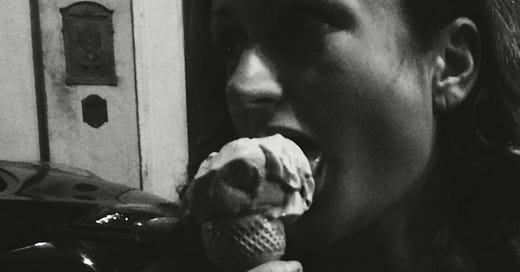I woke up this morning to my Tuesday delivery of organic local produce from Farm Fresh To You. Napa cabbage, a box of kumquats, mint for my coffee and water, a dozen fancy eggs, a few other things. I tried to put the kumquats away before I inhaled half the box. I cut the cabbage up and threw it in a pan with some coconut milk (full fat), turmeric, Bragg's Liquid Aminos, curry powder, and olive oil. I hard-boiled six eggs for the next few days, made my third cup of coffee (Trader Joe's Colombian Supremo drip with organic, homemade almond milk). Thirty minutes later I sloppily piled a handful of cabbage into one of the four bowls I own and peeled two eggs on top. I ate most of it without chewing entirely, so you might say I inhaled it. The box of produce is still out on my counter because I hate putting it away; my crisper doesn't work and it always stresses me out that some of it will go bad. I'm not full, or too full, or anything like that. I'm satiated and I'm not thinking about food…
© 2025 Holly Whitaker
Substack is the home for great culture




